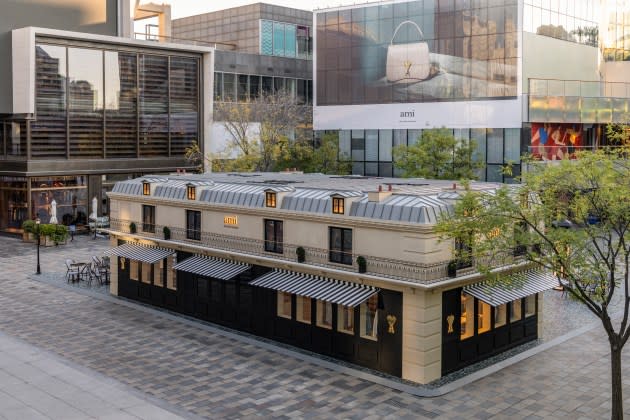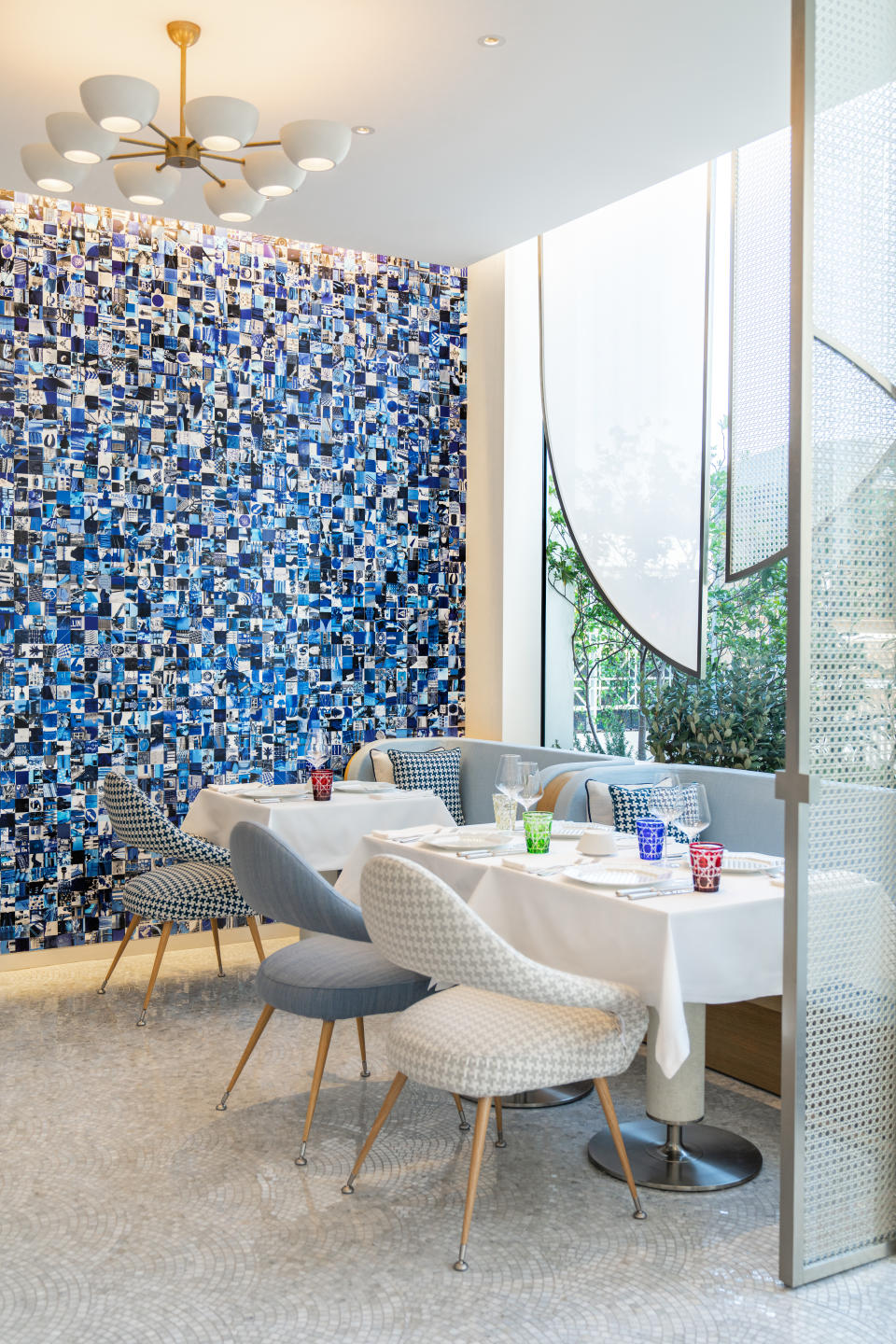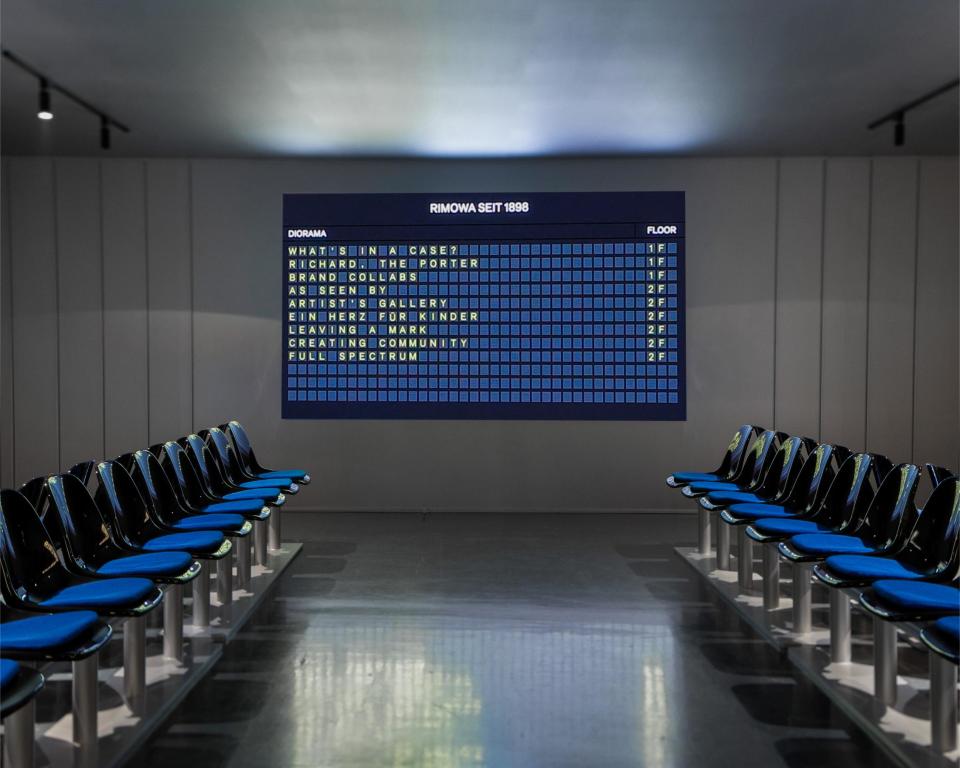China’s Luxury Hospitality Boom

SHANGHAI — In China, a wave of luxury cafés is occupying prime shopping mall storefronts and attracting a new crop of savvy young shoppers to luxury establishments.
Hospitality is quickly becoming an integral part of the luxury experience in China as consumers continue to seek emotional engagements with brands after the COVID-19 pandemic.
More from WWD
Mega Glocal Events Seen Driving Luxury Sales Amid China's Economic Slowdown
What to Watch: More Reality Checks in Store for European Luxury Brands
According to Euromonitor, “delightful distractions,” or small indulgences, will become a driving force behind the luxury industry’s growth story in 2024.
“This growth will mainly be driven by consumers looking for novel experiences with good examples coming from Tiffany & Co.‘s café, Prada‘s dining ventures and Café Kitsune,” said Fflur Roberts, head of luxury goods at Euromonitor.
Dior, the LVMH Moët Hennessy Louis Vuitton-owned luxury powerhouse, is the latest maison to enter the foodie scene, offering logo-ed lattes and social media-friendly treats. Located at Shanghai’s Qiantan Taikoo Li shopping complex, the café sits on the third floor of the Dior boutique and boosts an alfresco dining area.

In December 2022, Dior returned to Lake Songhua Resort in Jinlin province with a golden Christmas tree, a two-month-long pop-up shop and café, where butterfly-shaped waffles became an instant hit for avid skiers, who have driven a winter sports frenzy that’s become a common status symbol for China’s newly rich/middle class.
Recent popular examples of the retail plus café format came from the OTB-owned Maison Margiela. After opening its first Maison Margiela Café at the landmark luxury shopping mall Sino-Ocean Taikoo Li Chengdu in June 2022, the label followed up with a second one at Shanghai’s JC Plaza last July, where shoppers waited in long lines to grab a piece of Tabi-shaped white chocolate cake. The brand now counts four cafés in China.
Testing the waters in the market, both Prada and Rimowa offered cafés to their exhibition experiences in the market. Pradasphere Caffè, fitted in velvet and marble, offers visitors typical Italian snacks and a specialty Lavazza blend. At Rimowa’s itinerant Seit 1898 exhibition, visitors can enjoy specialty in-flight meals while enjoying a view of the lush greenery of People’s Park.

As a testament to branding power, last summer, Louis Vuitton set up pop-up bookstores at three fashionable roasters in downtown Shanghai, which attracted never-ending lines.
Last November, Ami used the café strategy to gain brand awareness and introduce its latest fall 2023 collection. At Ami’s three Le Café Ami pop-ups, shoppers were transported to the Marais district with the help of Haussmann-style Parisian building replicas, bistro chairs, cylinder advertising columns, and lampposts.
“Branded catering is not something new. I remember the 1921 Gucci Café at Shanghai’s Iapm shopping mall and Vivo’s café at K11 as early examples,” said Weiying Guo, associate director at Cushman & Wakefield.
“But most of the early tries were not successful because brands separated retail and catering, so consumers judged you based on how good the drinks and food are, which deviated from the point of a branded café, which was to expand brand awareness,” Guo explained.
“Luxury brands also realized that there are certain risks involved in finding a catering partner,” Guo added.
That’s why it’s important to note that behind most successful luxury hospitality ventures, there’s an experienced local vendor. Maison Margiela Café worked with Shanghai’s Bar Lotus founder Derek Wang on food and beverages management, while Louis Vuitton consulted with the parent company of Da Vittorio Shanghai, a Michelin-starred restaurant, on The Hall project, according to industry sources. As for Prada, the brand flew in chefs and managers from its hospitality ventures in Milan and London to oversee the Pradasphere Caffè project.
“Opening a restaurant is easy, but how to reach consumers on a cultural and emotional level is hard,” said Xiaoyi Liu, a seasoned food critic based in Shanghai. “Louis Vuitton did it with a fine-dining angle, but I personally prefer Prada’s pop-up markets; it reaches the masses.”
Based on a Euromonitor survey, hospitality-focused emotional marketing has become an effective way to drive offline engagement. Based on response from around 40,600 consumers in January and Feburary 2023, 55 percent of shoppers said they shopped in stores that created engaging experiences.
“Some brands use it as a nice added-value service, or a fun sidebar for lower-tiered customers, such as influencers and the Chinese middle class, which in turn helps improve footfall and generate online heat, which we call ‘free marketing,'” Guo added.
Yet for luxury players such as Hermès and Chanel, catering services are still reserved for top clients only. Elaborate fine-dining services and Champagne popping in-store unboxing ceremonies have become integral to the clienteling experience.
“It means that VIP shoppers will stay longer in the stores, which means they will potentially buy more luxury goods,” said Guo.
Best of WWD

